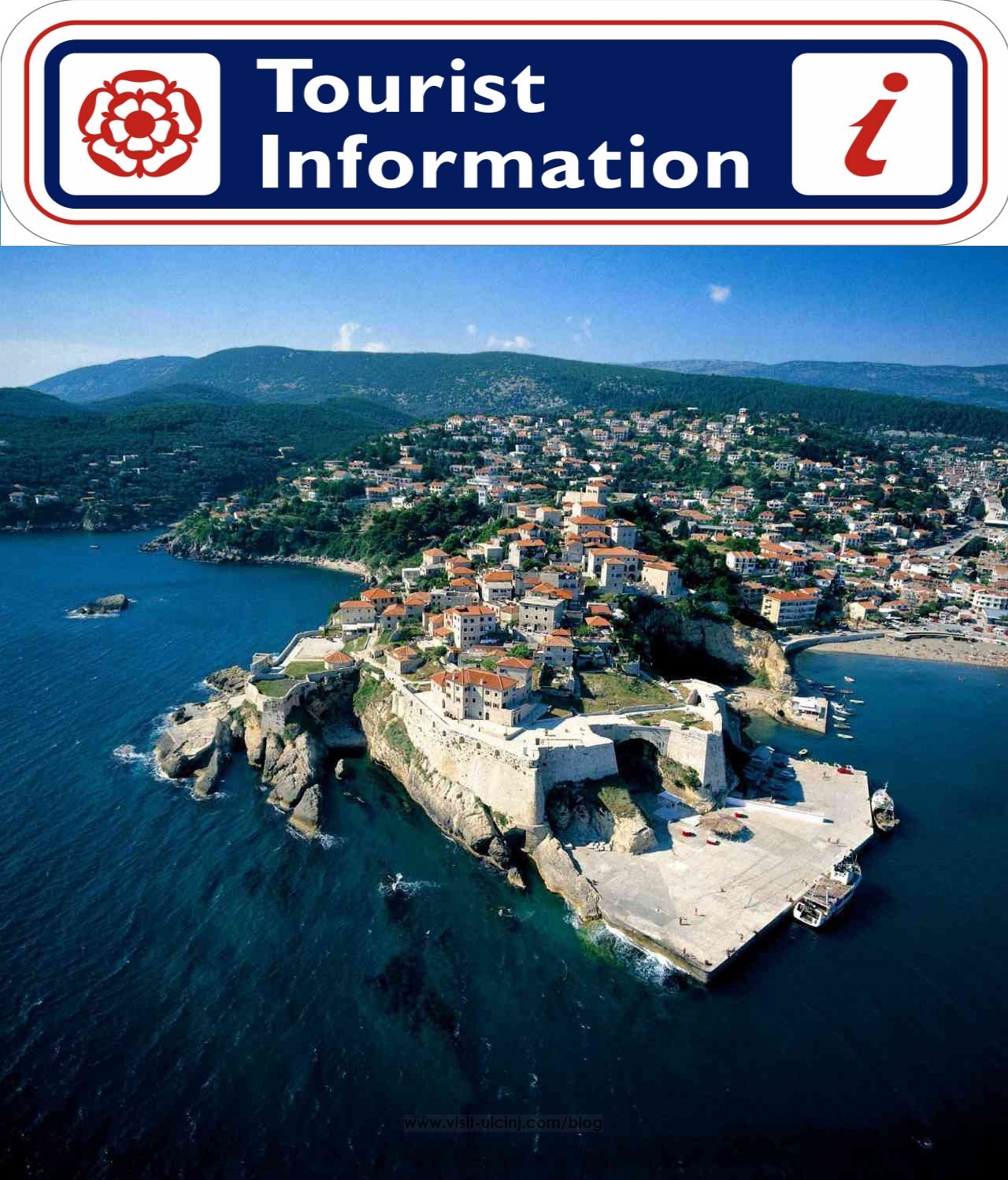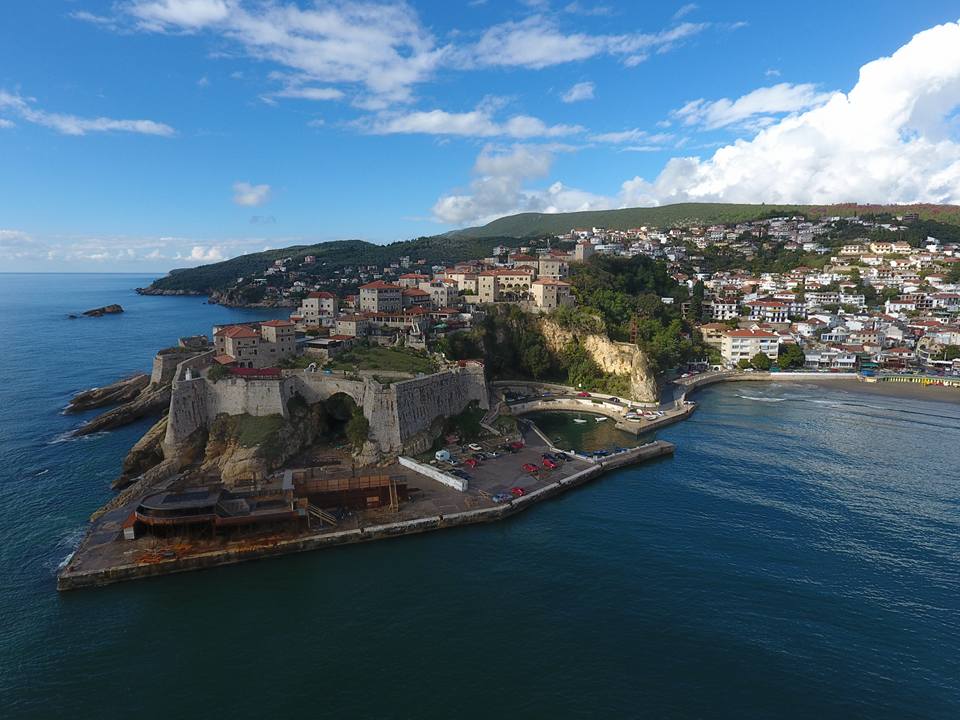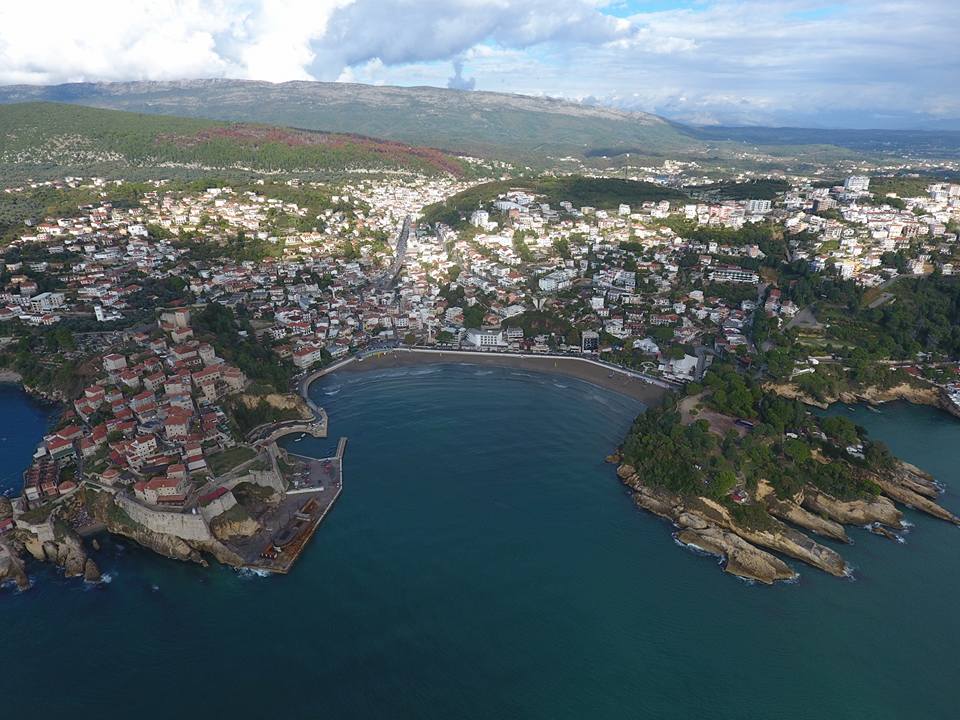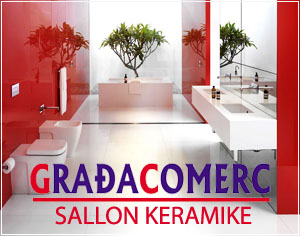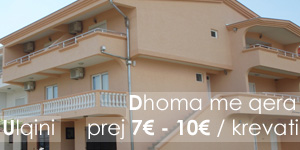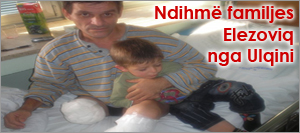On Sustainable Conservation of the Old Town Ulqin-Ulcinj – Kalaja
Sustainable Conservation of the Historic Fortress “Kalaja”
Ulqin – Ulcinj, Montenegro
September 30 – October 2, 2016
Over 70 participants from 15 countries came together in the town of Ulqin-Ulcinj to attend the International Symposium on Sustainable Conservation of Historic Fortress Kalaja, organized by the Albanian American Cultural Foundation and the Municipality of Ulqin. This symposium was also an extraordinary occasion for the culturally acclimated community to celebrate the 2016 European Heritage Days. At the symposium, more than 26 speakers presented their academic work on the preservation of historical and cultural heritage and on how to transfer them into economic assets. Following the official closing of the symposium, a round table discussion culminated in the following declaration.
DECLARATION
On Sustainable Conservation of the Old Town Ulqin-Ulcinj – Kalaja
Referring to the provisions set forth in international doctrines concerning cultural heritage, especially in the UNESCO Recommendation on the Historic Urban Landscape (2011), UNESCO Convention on the Protection and Promotion of the Diversity of Cultural Expressions (2005), UNESCO Universal Declaration on Cultural Diversity (2001), UNESCO Recommendation on Participation by the People at Large in Cultural Life and their Contribution to It (1976),UNESCO Recommendations concerning the Safeguarding and Contemporary Role of Historic Areas (Nairobi 1976), UNESCO Convention on Protection of World Cultural and Natural Heritage (1972),International Charter for the Conservation and Restoration of Monuments and Sites – Venice Charter (1964), Framework Convention on the Value of Cultural Heritage for Society (Faro Convention, 2005), European Convention on Landscape (2000), and the Convention for the Protection of the Architectural Heritage of Europe (Granada, 1985);
Acknowledging the most advanced and up-to-date theories and practice for the preservation of cultural heritage, historic urban landscapes, cultural landscapes and nature in different disciplines, including architecture, urban planning and design, economy, sociology, anthropology, archaeology, philosophy and legislation;
Having in mind that the historic center of Ulqin/Ulcinj,a walled town known as Kalaja, has a unique inheritance from long past and should be treasured, maintained and safeguarded from neglect, damage, and destruction, including uncontrolled or unsupervised development, in order that this resource may be passed onto future generations as a timestone of history;
Recognizing that Kalaja is not an unchangeable monument, but can and must be actively conserved and sensitively developed for the good of the entire community in order to avoid conflicts resulting from economic and power disparities which could be initiated by exploiting cultural differences which could then negatively impact sustainable development through unguided destruction of the historic fabric and social cohesion;
Contributing to the safeguarding of the heritage of Ulqin/Ulcinj and its diversity, so as to enable its transmission to future generations as an integrative element of sustainable development;
Being aware that heritage derives its meaning from the values that are impressed in it by the people who own, use, enjoy, guard and preserve it;
Perceiving that the historic urban landscape of Ulqin-Ulcinj is the result of a complex historic layering of cultural and natural values and attributes, extending beyond the boundaries of the old town Kalaja to include the broader urban and natural context, its geographical setting and sites of high significance, such as Valdanos, the Solina salt plant as one of the most important migratory stops for birds, long sandy beaches, beaches with sulphur wells, archaeological sites, hamams and the grave of Sabatai Zevi, and many more.
We, the participants of the International Symposium “Sustainable Conservation of Historic Fortress – Kalaja”, Ulqin/Ulcinj September 30th – October 2nd, 2016
DECLARE:
- The old town Ulqin/Ulcinj – Kalaja is in peril due to the following:
- Inappropriate development, including illegal construction that affects the authenticity of the physical fabric, the urban morphology, the local architectural typologies, the historic economic functions, the traditional materials, techniques and technologies, as well as the natural features of the townscape elements of Kalaja;
- Lack of planning, regulatory system, enforcement and comprehensive management, including the appropriate governance among different decisional levels and stakeholders;
- Low participation levels of civil society and local stake holders in the planning and decision-making process;
- Lack of appropriate tools and adequate policies at the local level, to guarantee both the preservation of the historic qualities and the valorization of the landscape and natural values;
- Lack of an integrated conservation approach;
- Absence of good examples and an educational system for property owners, government officials and developers, in order to recognize the long-term implications of short-term inadequate construction.
- State authorities of Montenegro, local authorities of Ulqin/Ulcinj, owners of edifices in the old town, and the residents of Ulqin/Ulcinj share responsibilities for the condition of old town Ulqin/Ulcinj, Kalaja, and should establish a dialogue to address its appropriate conservation.
WE INVITE
All, to urgently undertake the preparation of a Plan of Action, which will define a set of coordinated measures to immediately stop devastating damages to the historic town, and to prevent any further incoherent changes to the historic assets, suggesting the following priorities:
- Survey the state of conservation of the old town and other traditional monuments in the historic urban landscape based on previously published surveys;
- Remove illegal construction or additions that impoverish the visual, functional and structural integrity of Kalaja, also reducing its overall economic development impact;
- Identify relevant stakeholders for the sustainable management of Kalaja, considering their needs, demands and their readiness to contribute;
- Prepare and enforce a conservation masterplan for Kalaja and the historic urban landscape of Ulcinj;
- Prepare and activate efficient mechanisms for monitoring and control;
- Organise capacity-building initiatives at the local level through training of local authorities, professionals, craftsmen, property owners also through examples of succesful stories in the region;
- Raise awaraness on the significance of Kalaja, on the risk of its loss and the need of shared responsibilities among all levels of society, also through aset of activities in public space;
- Design and implement strategies for the valorisation of traditional crafts, rituals and folk-performing arts, adopting the old town as a privileged scenario;
- Plan the heritage-focused cultural/creative tourism based on the tourism capacity of Kalaja;
- Develop projects based on regional and international cooperation, including EU and otherfunds provided for such cooperation.
- Promote innovative approaches and tools such as crowdfunding that can stimulate a pro-active role for community networks.
- Create opportunities to share good practice examples, so that homeowners, property developers and government officials may learn from well-conserved historic centres in nearby regions;
- Publish guiding principles with illustrations for any new alterations to existing historic structures and for any new construction.
- The Albanian-American Culture Foundation and the experts cooperating with it commit themselves to work together with the authorities and the local stakeholders to improve the integrated conservation of cultural and natural heritage in the old town of Ulqin-Ulcinj, Kalaja and in its broader urban context.
This declaration encourages deep reflection on the current heritage management ethics and practices so that the challenges facing the present and the future generations can be addressed.
SPONSORED BY:
Albanian America Cultural Foundation, New York
Cafo Boga, Chairman
and
Municipality of Ulqin-Ulcinj
Nazif Cungu, Mayor
SPEAKERS:
| Acri, Marco | PHD Candidate on Heritage Conservation, Program coordinator for international programs ETCAEH at the University of Nova Gorica and the University IUAV of Venice |
| Bouchenaki, Mounir | Director, The World Heritage Center Category II, Arab Regional Center for World Heritage (ARC-WH), Former Director General of ICCROM, and the former Deputy Director General of UNESCO |
| Bruce, David | Academic Adviser to European Walled Towns, former Principal Lecturer in Tourism at University of West Of England, Bristol with Masters Degrees in Town Planning, Political Economy and Modern History from Universities of St Andrews and Edinburgh |
| Dajković, Aleksandar | MA Architecture, General Director, Directorate of Cultural Heritage, Ministry of Culture, Montenegro |
| Demjaha, Bujar | Ass. Professor at University of Pristine, Faculty of Arts, Republic of Kosova |
| Eppich, Rand | MA Architect and Conservation, Cultural Advisor, Polytechnic University Madrid, Spain |
| Gianighian, Giorgio | Vice-Director (Conservation-Restoration) of the International Research Centre for Architectural Heritage Conservation – IRCAHC – at the Department of Architecture of the School of Naval Architecture, Ocean and Civil Engineering (NAOCE) at Shanghai Jiao-tong University (SJTU), P.R. China |
| Hadzimuhamedovic, Amra | Ass. Professor at International University of Sarajevo, Center for Cultural Heritage – International Forum Bosnia, Bosnia and Herzegovina |
| Hoxha, Gjejlane | MA Architecture and Conservation, University of Dardania, Prishtine, Executive Head of Kosova Council for Cultural Heritage. |
| Ibrahimgil, Mehmet | Professor at Gazi University Ankara, Turkey |
| Jokilehto, Jukka | Emeritus Prof. International Center for the Study on Conservation and Restoration of Cultural Properties (ICCROM), Rome, Italy. The Special Advisor to the Director General of ICCROM Extraordinary Professor at the University of Nova Gorica, Slovenia |
| Jäger-Klein, Caroline | Professor at Vienna University of Technology and Member of the National ICOMOS Austria, Professor for History of Architecture and Architectural Heritage at the University of Business and Technology, Prishtine, Kosove. |
| Kapetanovic, Aleksandra | Architect and Conservation, Coordinator of cultural heritage sector of NGO EXPEDITIO, Center for Sustainable Spatial Develepoment, Kotor, Montenegro |
| Lafe, Ols | PHD Candidate, Archeology, University of Tirana, Cultural Heritage Adviser, Presidency of Albania |
| Lama, Ulpiana | Director, Department for co-operation with international organizations, Ministry of Foreign Affairs, Republic of Kosova |
| Lepratti, Christiano | Professor for architectural and urban design, Genova University (Italy), former International Union of Architects, UIA Director Working Program “Architecture for a responsible future” West Europe. |
| Mata, Martin | Co-CEO, Albanian American Development Foundation and Albanian American Enterprise Fund. |
| Mouton, Benjamin | Architect and Conservation, Chief of Historic Monuments, Paris, France |
| Ost, Christian | Professor and Former. Dean, ICHEC Brussels Management School, Raymond Lemaire International Conservation Center KU Leuven, Belgium. |
| Phelps, Dana | PhD candidate in Anthropology at Stanford University, Stanford, California, USA |
| Roshi, Elenita | Economist, Assistant Professor at University of Tirana Economic Faculty, Albania |
| Rypkema, Donovan | Economist in cultural heritage, President, Heritage Strategies International, Washington, DC |
| Sabovic, Igbala | Architect, The Foundation for Monuments and Sites of Montenegro – “ELArt”, Montenegro |
| Simatovic, Biserka | Senior Advisor, City of Dubrovnik, Department of Entrepreneurship, Tourism and the Sea, Republic of Croatia |
| Vlahović, Dobrila | Adviser of the Cultural Heritage Directorate of the Ministry of Culture, Montenegro |
| Zeren, Gulersoy Nuran | Prof. Istanbul Technical University, Faculty of Architecture, Urban and Regional Planning Department, Istanbul, Turkey |
llyriapress

